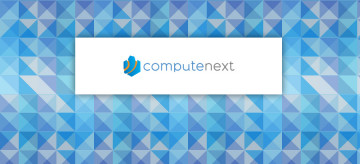- Advertising
- Bare Metal
- Bare Metal Cloud
- Benchmarks
- Big Data Benchmarks
- Big Data Experts Interviews
- Big Data Technologies
- Big Data Use Cases
- Big Data Week
- Cloud
- Data Lake as a Service
- Databases
- Dedicated Servers
- Disaster Recovery
- Features
- Fun
- GoTech World
- Hadoop
- Healthcare
- Industry Standards
- Insurance
- Linux
- News
- NoSQL
- Online Retail
- People of Bigstep
- Performance for Big Data Apps
- Press
- Press Corner
- Security
- Tech Trends
- Tutorial
- What is Big Data
How Healthcare Could Be Leading the Way Towards Cloud Adoption
By most reports, the healthcare industry has been slower than most in adopting the cloud. However, some key changes recently have marked a rapid acceptance of the cloud among the majority of healthcare providers, and if the pace keeps up the healthcare industry could lead the way to other industries accepting cloud services. Most notably, new studies show that 80 percent of healthcare agencies have or plan to have some type of cloud service in place, and 83 percent are using cloud-based applications. Here are the driving factors for healthcare embracing the cloud.

By most reports, the healthcare industry has been slower than most in adopting the cloud. However, some key changes recently have marked a rapid acceptance of the cloud among the majority of healthcare providers, and if the pace keeps up the healthcare industry could lead the way to other industries accepting cloud services. Most notably, new studies show that 80 percent of healthcare agencies have or plan to have some type of cloud service in place, and 83 percent are using cloud-based applications. Here are the driving factors for healthcare embracing the cloud.
Healthcare is Faced With a Budget Crisis

Medicare, a large source of income for healthcare providers, has teetered on the brink of financial disaster for years. Furthermore, as insurance are forced to offer coverage to all via the Affordable Care Act, more people are seeking medical attention for conditions that were previously uncovered by insurance, therefore largely went untreated. Hospitals and clinics are cutting budgets everywhere possible, and the cloud is a natural at reducing operating expenses. Facilities that used to have to depend on large teams of IT specialists can now outsource their computer operations, saving tons of money during this time of budget uncertainty.
Healthcare.gov, for instance, has added 100 terabytes of cloud storage space to support their back end infrastructure. Another example is the human genome information database planned by Google. This would store massive amounts of information on human genes in the cloud and make it readily available to healthcare providers, pharmaceutical companies, and researchers.
Healthcare is Taking on an Unprecedented Number of New Patients

Along with the Affordable Care Act, immigration reform has brought large numbers of new patients under the umbrella of American healthcare providers. Most hospitals and clinics lack the resources to keep all these patient records in-house, but the cloud provides cheap, efficient storage space that is easy to access. Additionally, the cloud provides an important disaster recovery plan in the event of fire or natural disaster. This protects the patients’ records while keeping information out of the wrong hands, and allowing health care facilities to focus on patient care, not records keeping.
Healthcare is Leading the Adoption of the Internet of Things
The Internet of Things is becoming a reality faster in hospitals than anywhere. Hospitals are investing in systems to help track devices - such as heart monitors, ventilation machines, sonogram machines, and more - so that machines are accounted for at all times. Patient monitoring systems, nurse call systems, and other connected devices allow hospitals to run more efficiently and provide better patient care. As the Internet of Things becomes a reality in modern healthcare facilities, cloud storage and applications will become essential for monitoring devices, storing information, and providing necessary communications among those responsible for the devices and patient care.
Bigstep offers Full Metal Cloud services that are significantly faster, less resource intensive, and more reliable than the traditional cloud. Visit the Bigstep website to see how fast the Bare Metal Cloud can run your data analysis with our free trial.
Readers also enjoyed:

Bigstep and ComputeNext - an award-winning partnership?


Leave a Reply
Your email address will not be published.